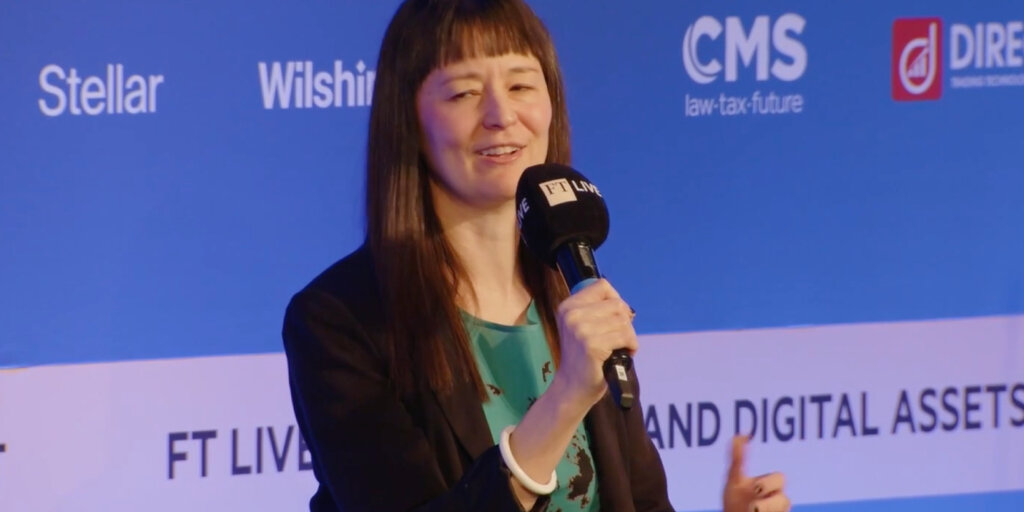The developer behind Bitcoin’s Lightning Network has tested a protocol designed to enable stablecoins to be issued on the Bitcoin blockchain, its CEO said.
Speaking at the Financial Times Crypto and Digital Assets Summit this week, Lightning Labs CEO Elizabeth Stark said that the developer had recently executed a test transaction on the Lightning Network with an asset created using the Taproot Assets protocol.
“We’ve released an early part of the code in October, and actually just on this past Thursday, demoed the first-ever transaction on Lightning of an asset,” Stark said. “The idea is to have crypto dollars and stablecoins” on the Bitcoin blockchain, she explained.
“I really care deeply about solving real problems for real people, as opposed to meme coins or gambling,” Stark said, adding that the ability to position stablecoins and other assets atop Bitcoin will “facilitate new use cases and bring more people on to the internet of money and digital assets.”
Stark also highlighted a post-halving wave of developer interest in Bitcoin, with “many builders coming back” to the blockchain. She pointed to developers building out decentralized finance (DeFi) on Bitcoin, as well as projects such as bitVM, which enables developers to build Turing-complete Bitcoin contracts.
Lightning Labs’ technology is designed “to eliminate the idea of cross border and just enable people to transact globally,” Stark said.
“The concept of a cross-border payment is something that we hear about a lot,” she added, before questioning “Why should we even call it ‘cross border’ anymore? We don’t have cross-border emails, we don’t have cross-border text messages.”
“I don’t have to pay any fees to send an image to a friend across the world—value on the internet, and money, should function the same,” she continued.
Stark pointed to a recent IMF report which found that Bitcoin “has become an increasingly important channel to send remittances and evade capital controls in emerging markets.”
That finding, she said, was “not at all surprising to those of us who are on the ground who are working with developers and communities in these places.” In markets subject to hyperinflation and authoritarian regimes, she said, “Bitcoin becomes an asset and a means of transacting when they don’t have other options.”

